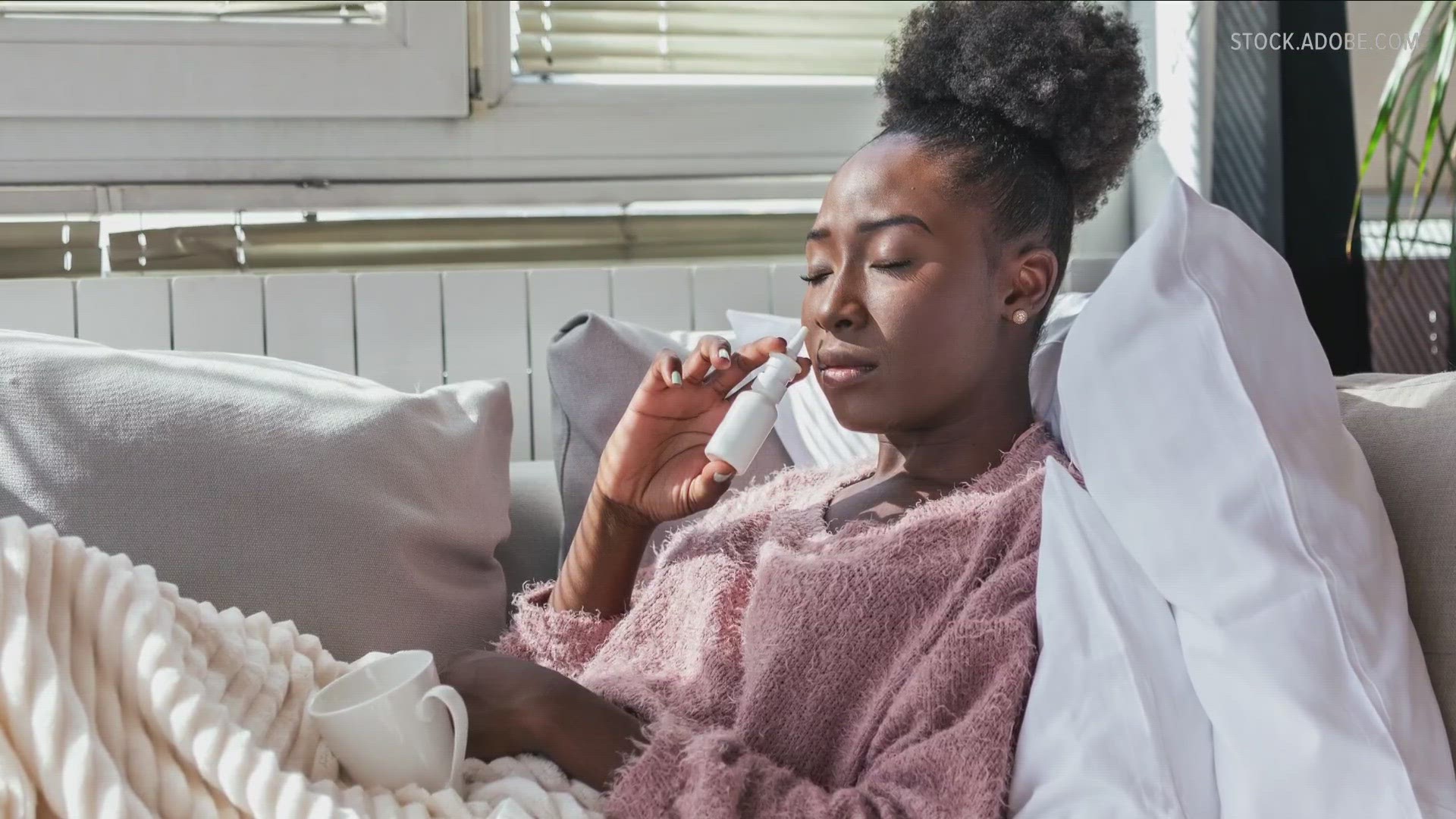BUFFALO, N.Y. — Cue the sneezing, coughing, congestion, and itchy eyes, throat — even ears. If you suffer from seasonal allergies, you know this time of year can be brutal, and experts now say the allergy season is starting earlier and lasting longer, which prolongs the pain for many people.
The more severe allergy season is due in part to climate change, say doctors and scientists. Growing seasons are longer, and the first frost is coming later in many parts of the country, which means there's more pollen floating around.
In fact, according to the U.S. Department of Agriculture, new research shows pollen seasons start 20 days earlier and last 10 days longer. In addition, there's 21% more pollen in the air than back in 1990.
Stanley A. Schwartz, MD, Ph.D., is the Chief of the Division of Allergy, Immunology & Rheumatology at the University at Buffalo. He explains how pollen causes allergy symptoms.
"The allergy antibody, when it sees an antigen, like a pollen granule, will bind to it and then bind to another cell in your body. It's like a balloon. It bursts and releases these inflammatory substances," said Schwartz.
There are many over-the-counter options to alleviate seasonal allergy symptoms, including steroid nasal sprays. He says you should start that regimen before you experience allergy symptoms.
"Nasal steroid sprays, they're probably the most effective. They're the standard of care. They were very inexpensive. What you need to do is use them consistently. If it doesn't work, take a pill. OTC antihistamines, so-called second-generation antihistamines," said Schwartz. "If that doesn't work, the next step would be to add a third treatment, and that might be using an antihistamine nasal spray. It's different than the steroid, and you use only as needed."
Schwartz also recommends keeping your windows closed when the pollen count is especially high and changing out of the clothes you wore outside when you get home. He also says shampooing your hair at night is an easy thing to do that can help with symptoms.
"Especially women with longer hair. You're going to lie on your pillow, and that hair's going to be saturated with pollen. It's going to go in your nose, so washing hair is a good idea," said Schwartz.

